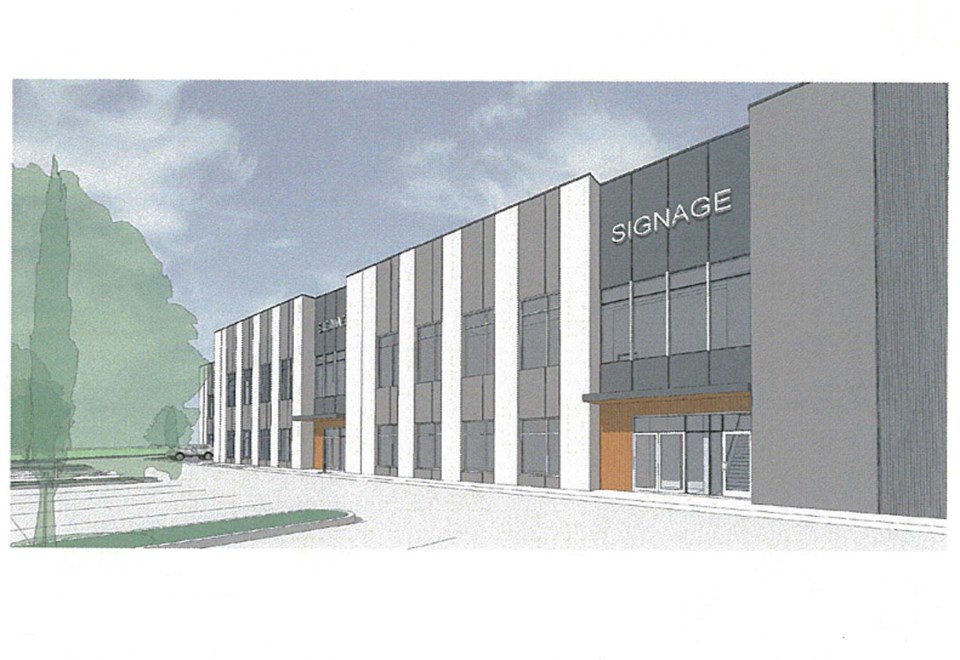Delta council last week approved a development permit and development variance permit for real estate developer Beedie (Beedie (Progress Way) Holdings Ltd.) to construct a new industrial complex in Tilbury.
The 148,682 square foot light industrial building is to be used for warehousing, distribution and offices. As the vacant property at 7672 Progress Way contains ditches that facilitate the surrounding area's drainage, a streamside protection and enhancement development permit was required.
The proposed light industrial warehouse building demonstrates a high-quality design incorporating quality landscaping, amenity areas and an engaging frontage that utilizes a range of building materials and glazing features, a Delta staff report notes.
In order to facilitate construction of the proposed industrial warehouse building, a driveway and landscape strip are proposed to be located on an adjacent city-owned lot.
Council last month gave conditional approval of two easements.
The Delta report also notes there are 20 trees on the property and eight are proposed to be removed. The owner is proposing to plant 53 trees on-site, exceeding the required 16 replacement trees, in addition to high-quality landscaped areas.
The development will generate an estimated additional $234,000 in annual property tax revenue for Delta, the report adds.
At a Metro Vancouver Regional Planning Committee meeting earlier this month, regional staff presented the recently completed Metro Vancouver 2020 Regional Industrial Lands Inventory.
Among the key findings is that there continues to be an increasing amount of industrial lands being used for non-industrial purposes, which poses a considerable threat to the industrial land base.
The report also notes there are few remaining available large sites for “trade-oriented” logistics uses, which has impacts on businesses locating in the region and being able to stay and grow here.
Although there was an increase in the total size of the inventory between 2015 and 2020, many of the lands added are not in locations well served by the transportation/goods movement network.
Even with those additions, due to the rate of development activity, the amount of vacant industrial land continues to decline, the report notes, adding there are continuing competing priorities for the limited lands.
The report notes most of the inventory additions occurred in Delta, Maple Ridge and Port Coquitlam.
The regional district, with support from its Industrial Lands Strategy Task Force, last year approved a new Regional Industrial Lands Strategy.
That strategy includes 34 recommendations with priority actions and so-called “big moves” for Metro Vancouver.




